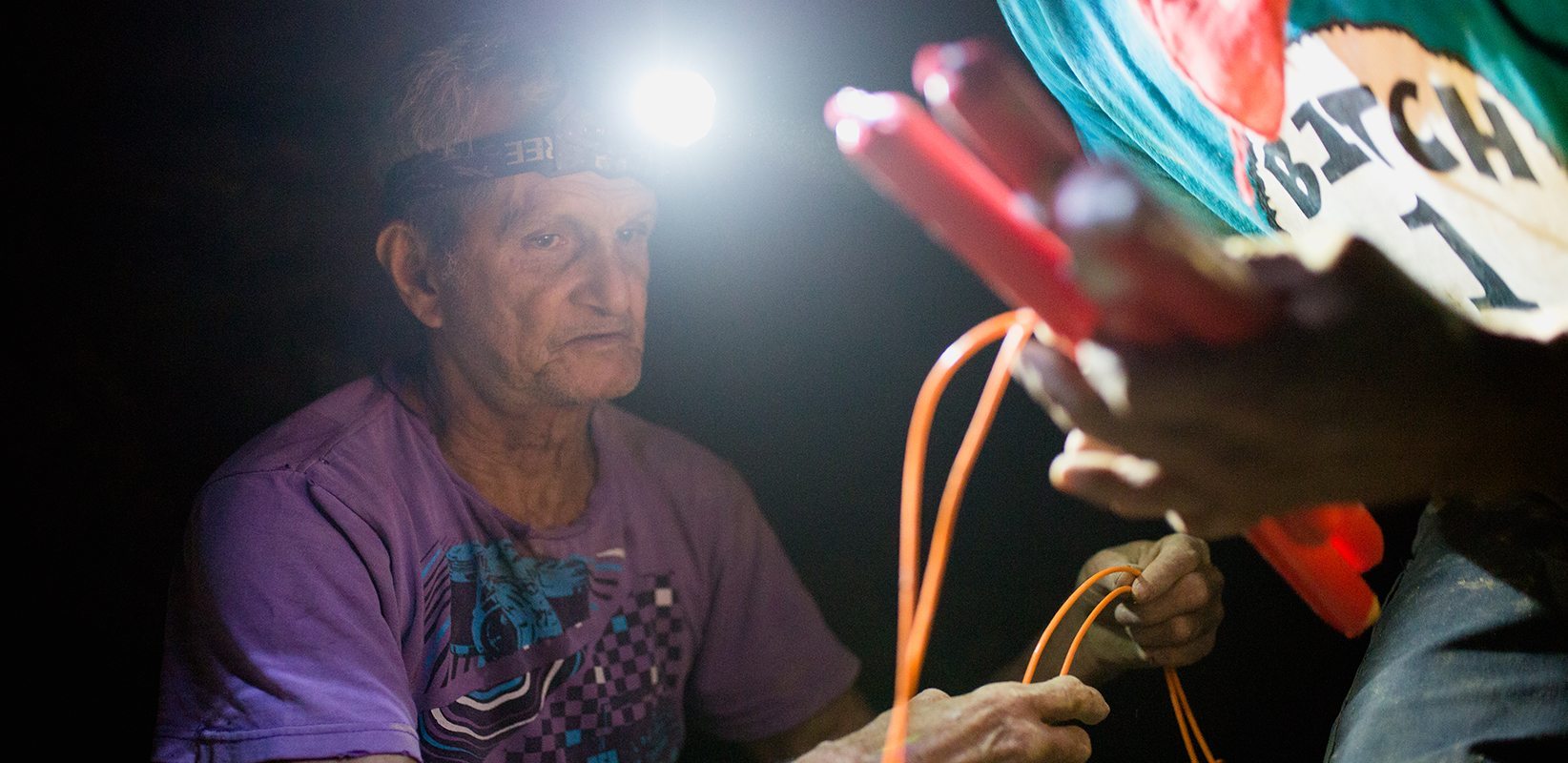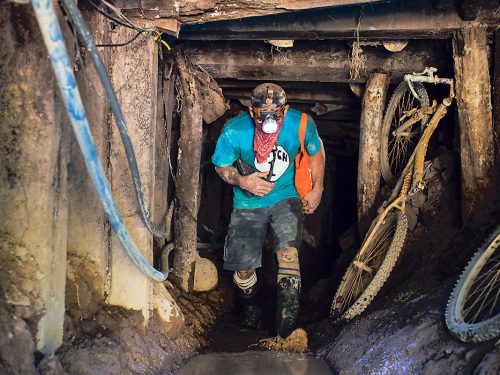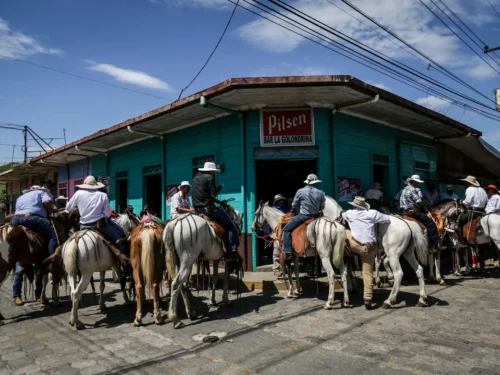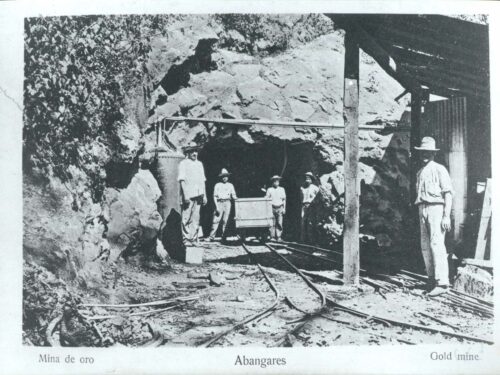
Everyday at the Abangares mines, hundreds of men risk their lives in exchange for a few grams of gold in order to make roughly 80,000 colons ($140) per week.
Surprisingly, this isn’t new. City hall knows it, the central government knows it, the people know it. Everyone knows, but they remain quiet. People die inside the mines, but they stay quiet.
Read our special report: Death Dressed in Gold
These small-scale miners aren’t in the news, neither the ones who survive nor those who die. They don’t have life insurance, they won’t have a pension and no one will compensate them if their lose their ability to continue working, but this doesn’t surprise anyone either.
After the controversy surrounding open-pit mining in Crucitas in 2011, lawmakers sought to protect the environment with a new Mining Code. A laudable goal, but one that, in Abangares, doesn’t work at all.
What’s the point of demanding the protection of the environment without protecting those who look after the environment? Abangares is the second-poorest canton in Guanacaste and the eighth-poorest in Costa Rica.
The legislation didn’t protect the people or the environment. There, mining the land is done without any type of control, by using chemicals that are highly toxic to both people and water sources.
According to the code, only cooperatives can have concessions and only their members can extract minerals, but this regulation is disobeyed because not all the small-scale miners join cooperatives and no one is checking to make sure only members mine for gold.
Inside the tunnels and shafts, as this newspaper shows, dynamite explodes everyday. In the gold mining process, they use mercury, a highly-damaging substance for both the environment and human health.
The life of a person that enters the shaft in search of gold isn’t worth less than that of the mayor of Abangares, or that of the director of the Environment and Energy Ministry’s Mining and Geology office, or that of the president of the country. It’s worth exactly the same. So, why does everyone respond to our questions as if this were an old problem that nothing can be done about? Why has the state resigned itself to forgetting about this population, which is estimated to be larger than 1,000 workers?
The new government must take care of the small-scale miners and not take away their sources of income or kick them out of the shafts because it has been more than proven that this doesn’t work at all (they will find some way of putting food on the table for their children). The next administration needs to provide alternatives that the miners consider reasonable. It also has the obligation to provide proper education (with equal scholarships) to the children that live in the homes of these miners. They shouldn’t be condemned to the same paradox as their parents: seeking out death everyday in order to survive.







Comments